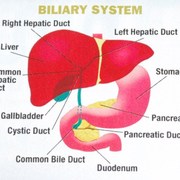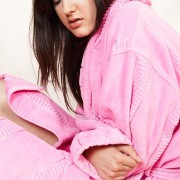 Hemera/Thinkstock
Hemera/Thinkstock
If you are among the legions of women facing gallbladder removal surgery, then a key question during the followup with your doctor should be, "What kind of foods can I eat?"
After all, it might have been your eating habits that led to gallbladder disease in the first place.
Diet after gallbladder removal is going to depend partly on the circumstances that led to your biliary tract problems, experts say. Most likely you will have to follow a low-fat diet.
Gallbladder disease is diagnosed when gallstones, which can range in size from a grain of sand to a golf ball, lodge in the wrong places in your bile ducts. The gallstones cause repeated pain in the upper abdomen or chest.
These gallbladder attacks can vary in frequency and duration. Treatments include, but are not limited to, taking a wait-and-see stance, or using a procedure called endoscopic retrograde cholangiopancreatography to remove gallstones through a thin tube. A third treatment would be gallbladder removal, often performed laparoscopically.
One figure puts the annual number of gallbladder removal surgeries in the United States at almost 800,000. Just being a woman puts you at greater risk for gallbladder disease.
When your symptoms include persistent abdominal pain, you might be a candidate for the surgery, known as a cholecystectomy. As your doctor will tell you, your biliary tract can function without a gallbladder.
As for post-operative diet, be sure to ask for advice.
Writing on the Mayo Clinic website, registered dietitians Jennifer Nelson and Katherine Zeratsky point out that the gallbladder collects the bile that your digestive system needs to break down and absorb fat.
When surgery leaves you without a gallbladder, the body needs to adapt to a new way to deal with fatty foods.
A low-fat recommendation would not be surprising. The dietitians note that smaller amounts of fat are easier to digest. Too much undigested fat puts you at risk for gas, bloating and diarrhea.
Nelson and Zeratsky advise:
Smaller meals, eaten more frequently and including a small amount of lean protein
Following a rule of thumb that the food item contain 3 grams of fat or less per serving
Gradually increasing fiber in your diet – vegetables, fruits and whole grains. It might take weeks to normalize bowel movements
Evaluating whether caffeinated beverages and dairy products are causing digestive problems
Some risk factors for gallbladder disease include female gender, older age, heredity, high cholesterol levels and obesity. Treatment with estrogen-type medications, diabetes, pregnancy and rapid weight loss can also be risk factors.
Even if you have gallstones, in the majority of cases the pain will be nonexistent or not severe enough to warrant surgery. Perhaps, too, you will find ways to feel better through diet and lifestyle changes.
Sources:
"Biliary Tract Disorders, Gallbladder Disorders and Gallstone Pancreatitis." American College of Gastroenterology. Web. 14 May 2012. http://patients.gi.org/topics/biliary-tract-disorders-gallbladder-disorders-and-gallstone-pancreatitis
"Pain Characteristics Suggest Higher Benefit from Gallbladder Surgery." ScienceDaily.com. Web. 14 May 2012. http://www.sciencedaily.com/releases/2011/10/111012124141.htm
Nelson, Jennifer and Zeratsky, Katherine. "What's OK to eat after gallbladder removal?" MayoClinic.com, Nutrition-Wise Blog. Web. 14 May 2012. http://www.mayoclinic.com/health/gallbladder-removal-diet/MY01815
"Gallstones." National Digestive Diseases Information Clearinghouse. Web. 14 May 2012.
http://digestive.niddk.nih.gov/ddiseases/pubs/gallstones
Reviewed May 15, 2012
by Michele Blacksberg RN
Edited by Jody Smith






Add a CommentComments
There are no comments yet. Be the first one and get the conversation started!